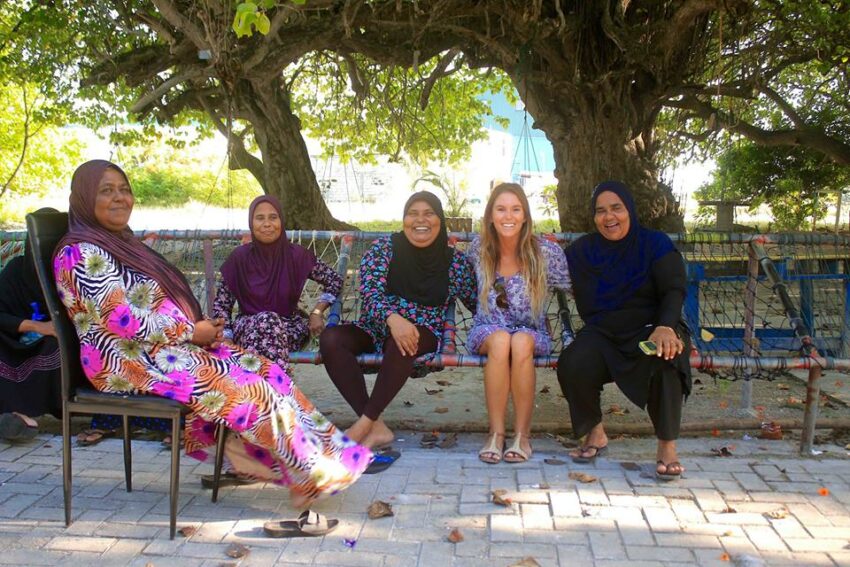WHY SHOULD YOU LEARN THE MALDIVES LANGUAGE OF DHIVEHI?

Here at Secret Paradise, we don’t take Responsible Tourism light-heartedly! We want to ensure that the Maldives remains an incredible tourist destination for generations to come. We have a responsibility to keep our environmental footprint small and to minimize the negative impact on both the environment and local culture.
An important way to show respect for any culture is to embrace cultural differences. This can be as simple as taking the time to learn a few key phrases or words in the local language. Even if you are unable to say them perfectly, your efforts will always be noted.
When approaching a local, maintain a positive attitude, always wear a smile and be patient. Be friendly, non-threatening and non-judgmental. These will all help your communication with locals in any destination and will result in a better relationship and an enjoyable experience.
Everyone likes it when people show an interest in them. Learning the local language is the ultimate way to show you care about the local people and culture. When you show that you care about another’s way of life, you show that you are a compassionate, thoughtful person. This display of empathy will open all kinds of doors for you.
Our friends at Travel Trade Maldives wrote the following article:
If you’re a visitor in a foreign country then you probably know how difficult it can sometimes be if you have to ask for directions or other information from someone who only speaks the local language. Even if you know English, it might not necessarily be the case with the person at the receiving end and using your arms and legs to attempt some form of visual communication can only get you so far.
Luckily, that would rarely happen in Maldives as almost everyone can understand and speak some amount of English. Still, there’s no denying that learning a few local phrases and words can come in quite handy while in a foreign country. If nothing else, watching tourists trying to pronounce a particularly complex word or phrase usually provides a lot of entertainment for the locals!
The language of the Maldives is called Dhivehi (sometimes written as Divehi also). Over the years the language has been influenced by several other languages, mainly Arabic, French, Persian, Portuguese and English. In a curious bit of trivia, English words such as ‘atoll’ and ‘doni’ are widely regarded to be anglicized forms of the Dhivehi words ‘Atholhu’ and ‘Dhoni’.
Dhivehi Phrases to Learn Before Your Next Trip to Maldives
Let’s start off with a few simple greetings. The preferred formal greeting upon meeting someone is the Arabic phrase “As-salaam Alaikum”.
However, most Maldivians will generally respond well to a simple “hello”. Most people will greet you with a simple “Kihineh?” or “Haalu Kihineh?” which is the equivalent of a “How are you?” or “How do you do?”. If someone else asks how you are then you can respond with “Rangalhu”, which means “Good”.
Here are a few other simple Dhivehi phrases and their meanings.
English – Dhivehi
Yes – Aan
No – Noon
Where? – Kobaa?
What is (your) name? – Kon nameh kiyanee?
My name is… – Magey namakee…
Goodbye (informal) – Dhanee
Thank you – Shukuriyyaa
What is the price? – Kihaavarakah?
Sorry – Maafu kurey
Travelling with a Secret Paradise guide allows you the opportunity to learn more than just a few phrases. Many of the guides are known to challenge themselves to ensure that their guests leave knowing more Dhivehi than when they first arrived!
Check out our guided multi day tours and immerse yourself in our Maldives island paradise.
Practical Dhivehi written by M.Zuhair and published by Novelty is a guide to learn Dhivehi and is can be found in Novelty Bookshops in Male.



